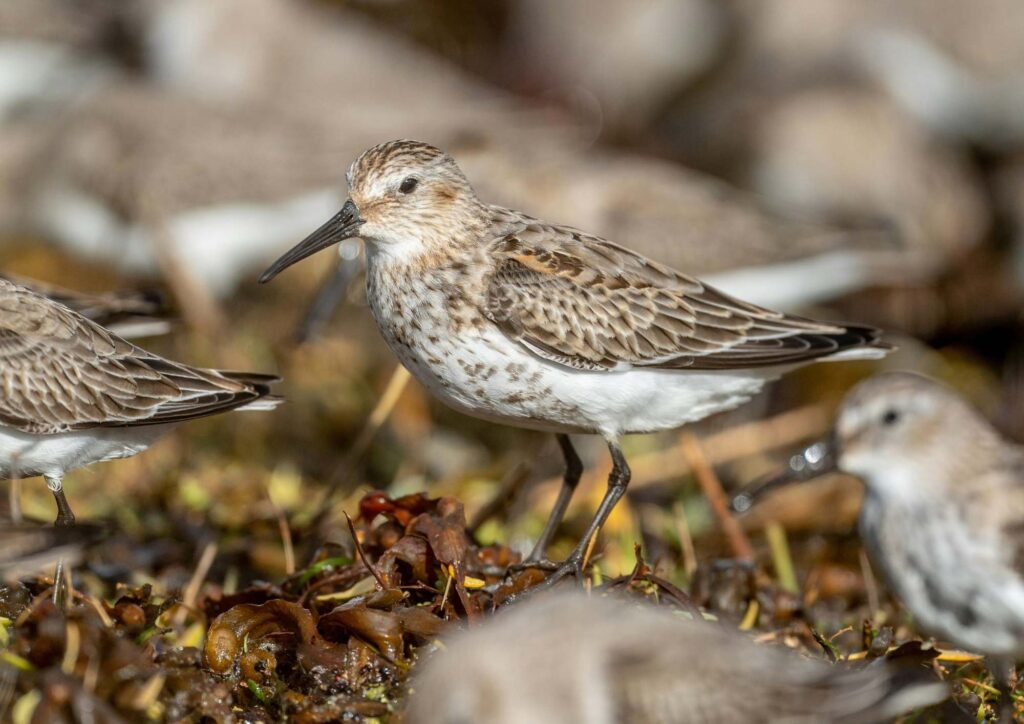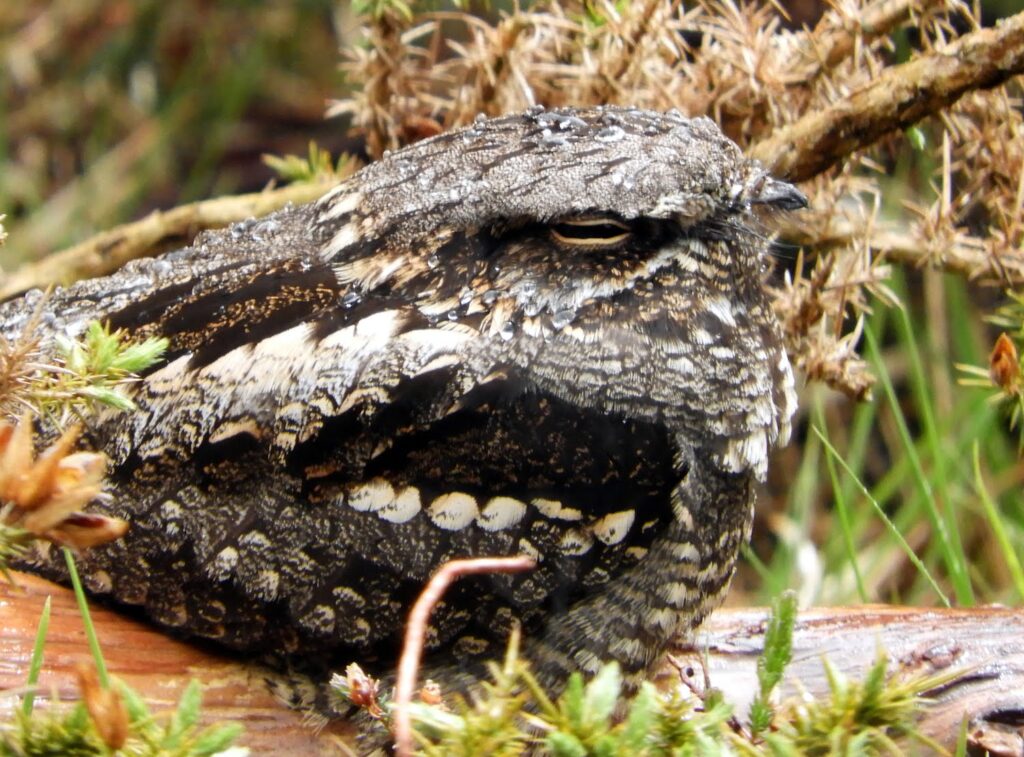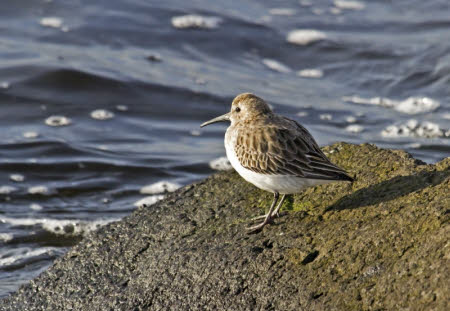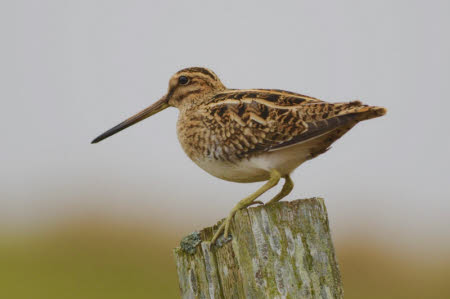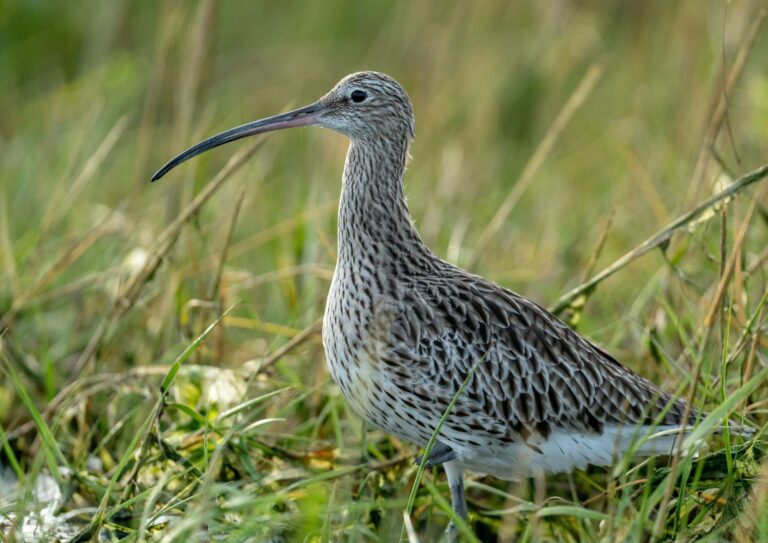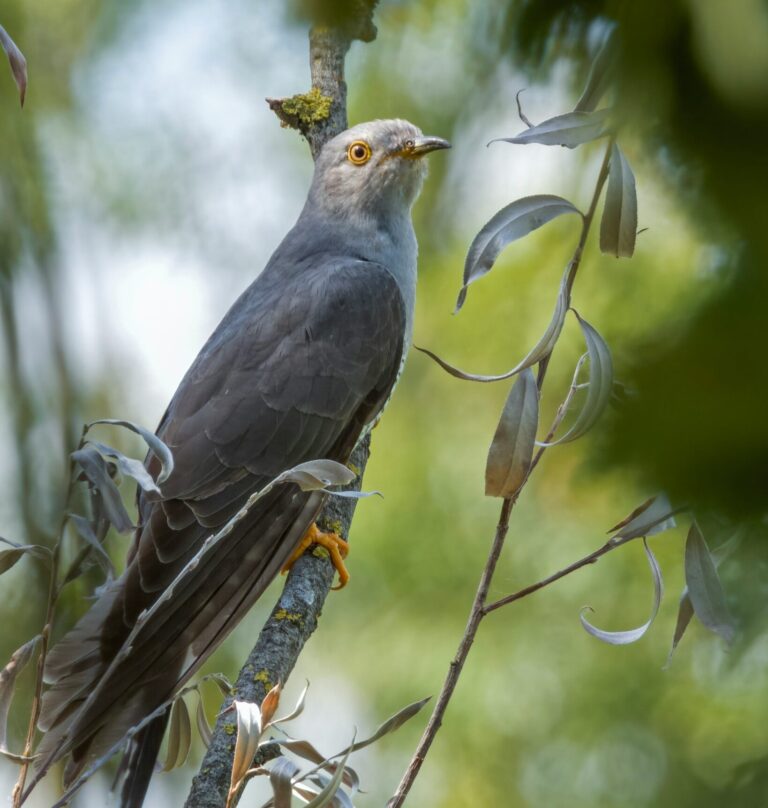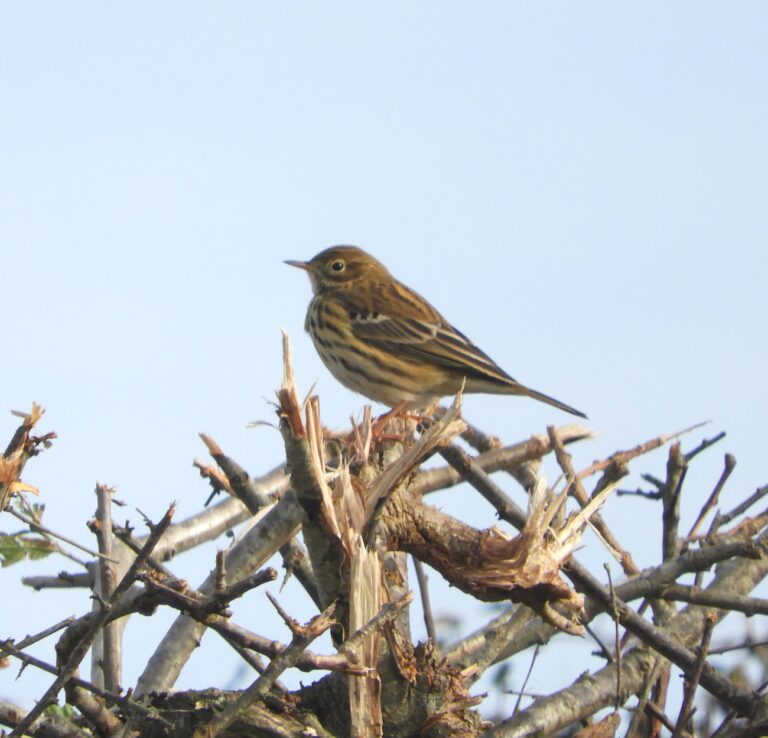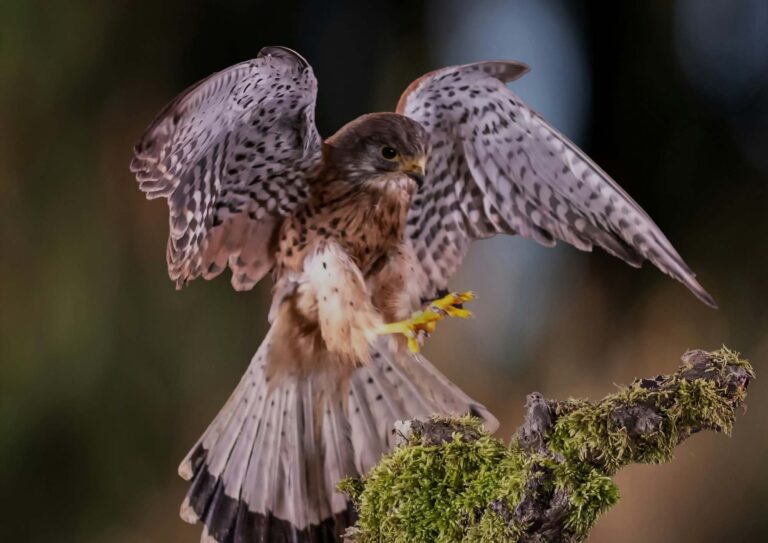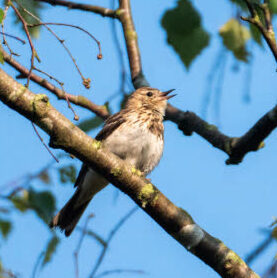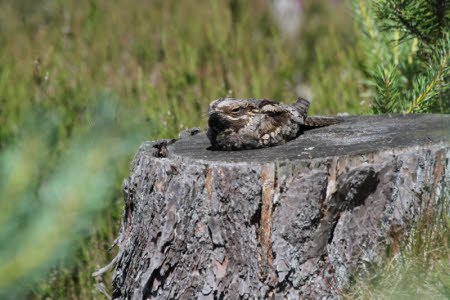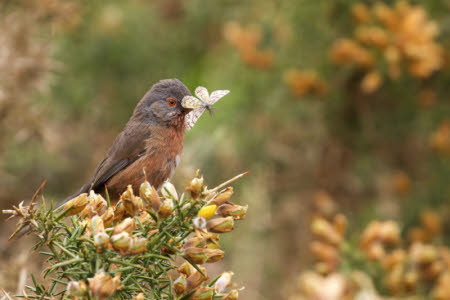This Focus Group includes the birds that breed in Devon’s invertebrate-rich tussocky heaths, moors, rough grasslands and mires. These grazed habitatsThe natural environment in which an animal, plant or other o... More provide food, shelter and nesting sites for a wide range of birds. However, due to habitatThe natural environment in which an animal, plant or other o... More loss and a decline in its condition, many of the birds which use these habitats are now threatened.
SpeciesA group of similar organisms that can breed and exchange gen... More, such as curlew, cuckoo, snipe and whinchat were once found across Devon but are now mainly found on Dartmoor and Exmoor. The short-term priority is to improve habitat for the remaining breeding populations in the uplands. However, they should not be seen as upland species. The long-term aim must be to restore these species across Devon – and ensure that everyone is familiar with the call of the cuckoo.
Golden plover, ring ouzel and lapwing no longer breed on Dartmoor and merlin and red-backed shrike are only occasional breeders. They are not included in this group but the actions proposed will benefit them if they return.
Other Focus Species that use these habitats are skylark, linnet and yellowhammer, see the Lowland farmland birds group.


